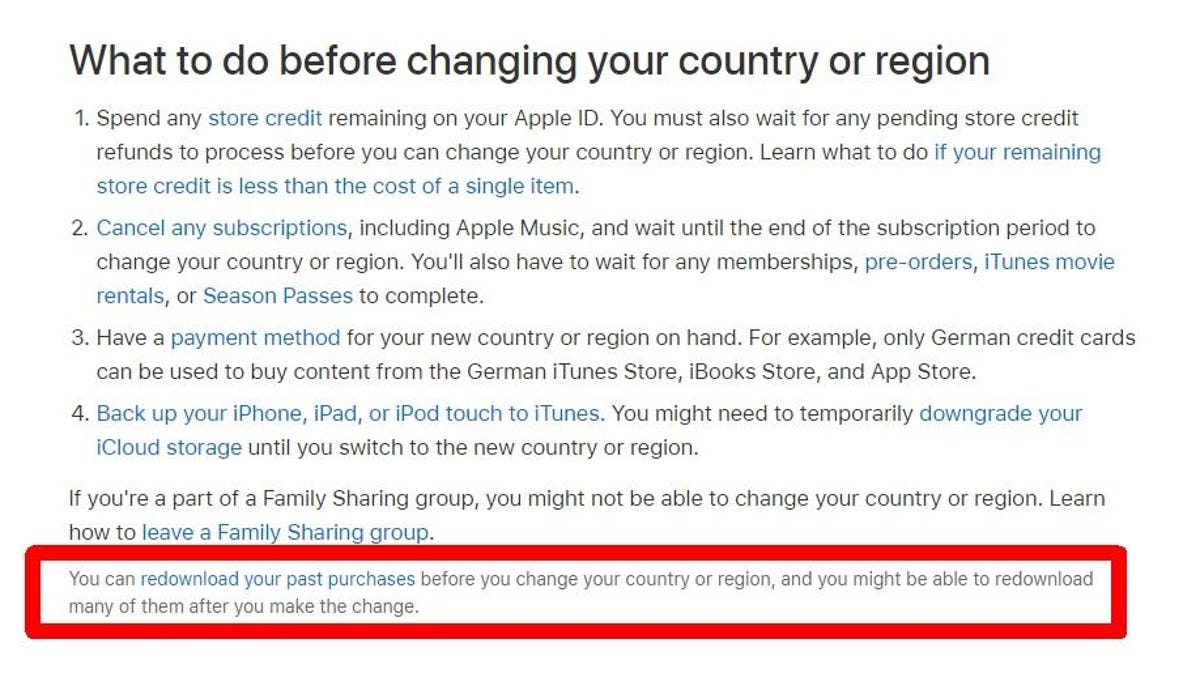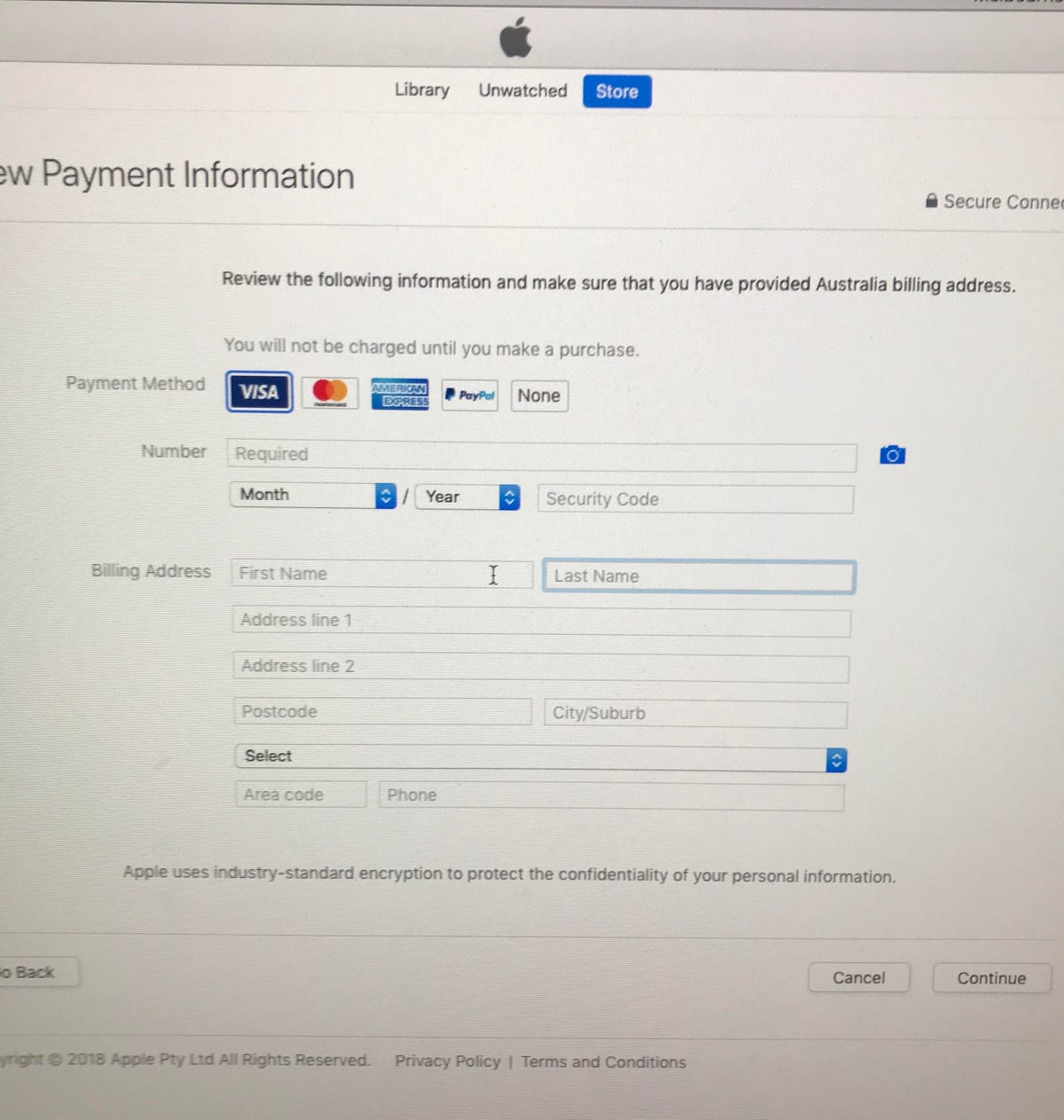Perhaps you’ve heard a story that goes like this:
“Apple’s ‘buy’ button is a sham, because Apple has the right to remove movies from your iTunes library after you’ve bought them. If Disney decides it no longer wants to offer a particular movie in your country, your ‘purchase’ is no better than an extended rental. Only Blu-rays and DVDs are safe.”
Here’s the thing: Some of that may be true. But the story about disappearing digital copies isn’t. Or, at the very least, it’s a lot more complicated than that.
Though his tweets went viral, and though he did chat with Apple Support, the company didn’t delete or actively “remove” the movies that disappeared from Anders Gonçalves da Silva’s iTunes library and his devices. It seems to have been a more complicated mix-up, based on the fact that da Silva moved his residence from one country to another.
Most importantly: Apple tells CNET that it won’t delete your movies, either. At least, not ones you’ve downloaded.
The tweet that started it all
It’s not too surprising that the original tweetstorm caught fire:
Me: Hey Apple, three movies I bought disappeared from my iTunes library.Apple: Oh yes, those are not available anymore. Thank you for buying them. Here are two movie rentals on us!Me: Wait… WHAT?? @tim_cook when did this become acceptable? pic.twitter.com/dHJ0wMSQH9
— Anders G da Silva (@drandersgs) September 10, 2018
It’s tough not to be outraged by a seemingly tone-deaf letter like the one above. “A customer bought these movies, they’re gone, and he’s only getting a couple rentals in return?”
Indeed, dig deeper into Apple’s Terms of Service, and you’ll see that it quietly warns that you may not be able to redownload content if it’s “no longer offered on our Services.” It’s not hard to see why headlines like “Apple can delete the movies you purchased without telling you” started spreading around the web.
But take a closer look at da Silva’s tweet, and there’s something interesting going on. Apple Support thinks he’s in Canada, while da Silva’s Twitter profile and LinkedIn show he’s from Australia. That’s a rather large geographical difference.
When we reached out to da Silva, he clarified the disparity: He moved to Canada, roughly nine months ago, after purchasing the films in Australia. Not only is that two separate countries, it’s two separate iTunes Store regions. Perhaps Canada doesn’t offer those films anymore, and that left him unable to access them in his new location?


“Content may not be available for Redownload if that Content is no longer offered on our Services.”
Screenshot by Sean Hollister/CNET
The thing is, those three titles — Cars, Cars 2 and The Grand Budapest Hotel, according to da Silva — are still available to purchase in both Australia and Canada, CNET confirmed. He could buy new “Canada” copies right now. So why are his “Australia” copies gone?
And it doesn’t seem to be a matter of Australian purchases not working in Canada, either. “I have other purchases made while in Australia, and using the same Australian iTunes account, that are working perfectly fine,” da Silva told CNET.
Generally, you can take iTunes purchases with you when you travel, though Apple’s fine print does include a caveat in case they disappear:

 Enlarge Image
Enlarge ImageThe word “might” might be important here.
Screenshot by Sean Hollister/CNET
But there’s another possibility: Perhaps da Silva still has access to the Australian versions of these movies, but not the Canadian ones?
Apple’s statement
That’s certainly what Apple seemed to be hinting when we asked the company about it this weekend. Apple said:
“Any movies you’ve already downloaded can be enjoyed at any time and will not be deleted unless you’ve chosen to do so. If you change your country setting, some movies may not be available to redownload from the movie store if the version you purchased isn’t also available in the new country. If needed, you can change your country setting back to your prior country to redownload those movies.”
Sure, Apple’s statement doesn’t say exactly what happened to da Silva’s movies, or admit that Apple Support may have made a mistake when parsing the original response. But it clearly states that the company doesn’t delete movies without your permission — and that you should even be able to redownload movies from your “prior country” if they’re not available in the new one.
Two possible culprits
More likely, the phrase “if the version you purchased isn’t also available” speaks volumes about what actually happened here. Few films have a single version sold throughout the world. For a variety of reasons, a movie may get trimmed in one country to get a more approachable rating (say, PG-13 in the US), or to cut politically or culturally sensitive content. And that’s not even counting directors’ cuts, in which multiple versions of the same film may be sold in the same region.
The other issue is that “region hopping,” a common tactic among film lovers worldwide to get earlier or different versions of movies, is becoming harder and harder. So, even when someone has legitimately moved from one region to another, as da Silva has, he may be penalized by the digital walls that sellers like Apple, Amazon are continuing to raise to close cross-region loopholes. (Amazon, Vudu and any other retailers of digital content have the same sort of contracts with the studios that Apple does.)
Indeed, those movies may still be stored in da Silva’s Australian account — but he can’t easily switch back to the Australian region to download them again.
When we asked him to try, he sent us this photo:


Anders G. da Silva
Apple generally requires customers to have a local credit card or PayPal account on file, which generally means he’d need a local billing address too. Since he now lives in Canada, not Australia, that’s a little difficult — though da Silva says Apple Support is promising to send him a workaround.
But even the workaround isn’t particularly user-friendly. To get back into the Australian store, da Silva will have to forfeit his Canadian store subscriptions and store credits, he says. (Apple’s support page suggests the same.) And if he wants to go back to the Canadian store, he’ll need to download them to a Mac or iOS device, and use them as a local server, in order to stream them to his Apple TV.
What we still don’t know
The reason da Silva’s missing movies got so much attention: they seemingly revealed Apple wouldn’t stand by its customers if the studios tried to pull their films. We now know it’s premature to say anything like that.
To be clear, the ability to buy or rent movies on services like iTunes and Amazon already fluctuates according to studio “windowing” calendars. But even if a movie you could buy on iTunes becomes unavailable to purchase for a few weeks — or months — it remains accessible in the cloud to those customers who bought it when it was being sold.
At least, that’s how it’s worked so far. We can’t be sure what will will happen if Disney — or any other content provider — “recalls” a digital purchase, as a publisher did with an ebook of George Orwell’s 1984 on Amazon back in 2009. It sounds like your “already downloaded” movies are safe, but what about cloud-based movies you’ve only ever streamed? Apple doesn’t say.
We may have to cross that bridge when we come to it. As for da Silva, he now admits that his situation was a bit of an edge case:
“I fell into a licensing crack, it seems.”
Apple’s little box is an expensive buddy for your big 4K HDR TV






+45 more


Now playing:
Watch this:
How to buy a media streamer in 2018
2:54
How to update your iPhone to iOS 12: You’ve got two options.
A 5G iPhone? Why Apple’s in no rush to sell you one: Everyone else can’t stop talking about how great 5G is.



